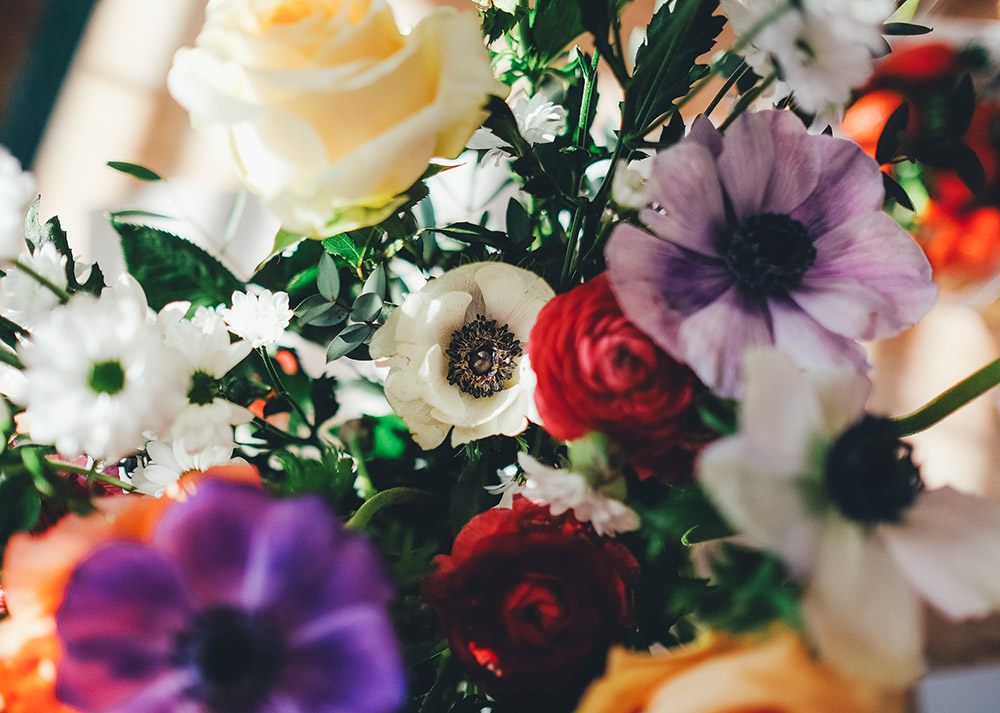
(Unsplash/Annie Spratt)
People all over the world are accustomed to a certain schedule or routine from morning until night. These personal "timetables" can be as simple as taking pills at a certain time — one tablet in the morning, at noontime and in the evening. Or as complex as a professional job like that of people such as our beloved President Joe Biden.
Students' lives are not the exception either, for we, too, have complex schedules particular to our institution. As part of a student body, I went to our chapel one evening in January as I am accustomed to do. But that day my experience was totally different as I looked at the beautiful flower decorations in the chapel.
Our chapel had some of the most unique, colorful, prettiest, sweetest flowers I have ever imagined. Among all the different flower arrangements in the chapel, I was just attracted to one vase of flowers which became the subject of my entire evening meditation.
Do you know what a flower is? From our knowledge of basic science, we understand that a flower is the seed-bearing part of a plant, consisting of reproductive organs (stamens and carpels) that are typically surrounded by a brightly colored corolla (petals) and a green calyx (sepals).
Or "flower" can mean "the finest individuals out of a number of people or things"!
Have you ever given or received a flower as a gift? Flowers are the preferred gift for almost everyone and for every event. We give blossoms on birthdays, anniversaries, Valentine's Day, Christmas, memorials, funerals, graduations ... I tell you, the list is endless. I know that each of us at some point in our life has either received or given flowers as a gesture of expressing our congratulations, sympathy, love, appreciation or the like.
A quote widely attributed to John Harrigan said, "Happiness held is the seed; happiness shared is the flower." For believers like me, if Jesus had not risen — but instead remained in the tomb like a seed — we Christians would not have a shared belief. But because he rose from the dead, he accepted the sharing of his humanity and divinity with us, and therefore became our firstborn "flower gift." His resurrection has made us known as Christians (brothers and sisters in Christ).
This particular vase of flowers on which I was meditating had four different flower types, though I did not know their specific names. I drew near to it and tried to smell each particular flower to see whether they had the same scent. To my surprise, each flower in that vase had a different and unique scent.
Advertisement
A long time ago, my mother would go out into the field, uproot various flowering plants, boil them, and allow me to drink the water for stomach pain. As I continued to think about some of the uses of flowering plants, I realized that apart from being medicinal plants, and their scintillating and aromatic scents, each flower has got its own set of secrets, history or significance — so we consider them the most priceless, versatile gifts for special days. Examples: hibiscus, sunflower, tulip, orchid, daffodil and rose.
The flowers are designed to lure insects and other animals to feed on their nectar, and in doing so, the animals collect pollen on their heads and body. As a result, the animals act as pollinators; when the pollen is rubbed on the male part of a new flower, it may fertilize the ovum and produce a seed that will grow into a new plant.
Then my reflection turned to my community at our school, comparing it to the flowers in front of me. We are a diverse mix of people of different color, race, ethnicity, nationality, age, status, level of education, experience — and there are many other ways of categorizing our various communities! In the philosophy of the human person, we learned that every existing thing has got substance and accidents.
I ask myself: How often have I been a flower to my fellows in the community where I live? Am I ready to be a gift? And if so, what use do I have? Am I ready to lose myself and die like the seed, so that I may produce other flowers? As we read in John 12:24, "Very truly I tell you, unless a kernel of wheat falls to the ground and dies, it remains only a single seed. But if it dies, it produces many seeds."
The gifts and talents that we have are like the floral scents we each produce for our communities. Do I produce a sweet or bad scent? Which occasion do I fit as a flower: church decoration, funeral, birthday, graduation, valentine, wedding, memorial, public event?
Every time we imagine giving or receiving a flower in our respective communities, we can meditate on the fact that that we ourselves are flowers that bloom in the morning and fade in the evening. For all human beings — like flowers — fade and die away. Unless you leave a good scent, your name is forgotten, but if your scent was attractive, you will remain in the hearts and minds of many.
Let's keep trying to be sweet-scented flowers for each other.





